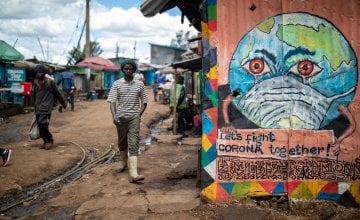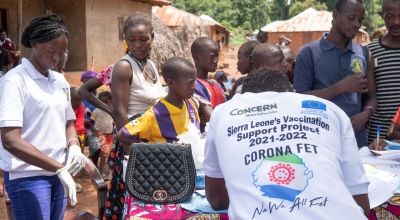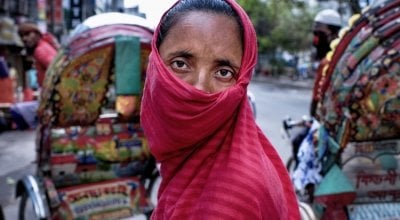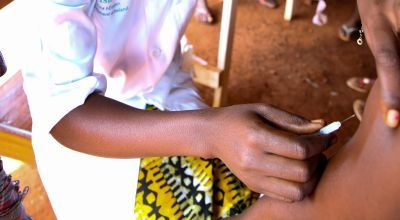
Read our 2023 annual report

Knowledge Hub
'Vaccine distribution must prioritise the most vulnerable, not the most wealthy'

The truism that ‘no one is safe until everyone is safe’ rings hollow unless the world commits to a vaccine distribution system that prioritises people based on their need rather than nationality, says Concern's Chief Executive Dominic MacSorley.
In recent weeks, there has been much discussion about the rollout of the COVID-19 vaccination - both in Ireland and globally. However, to meaningfully address this worldwide crisis, equitable distribution of the virus must be at the top of the agenda.
To put that another way, a 30-year-old in Europe with the capacity to work remotely should not get a vaccine before a front line health worker in a low-income country.
In Africa, where community health workers and volunteers are on the frontlines of suppressing epidemics, this is particularly necessary. Community health workers and volunteers were the primary force that defeated Ebola in West Africa six years ago. Tragically, too many of them died because they were the ones most exposed to the virus but, at the time, there was no viable vaccine available.
During the 1990s, when antiretroviral drugs were developed to arrest the progress of HIV in those who had become infected, it was a miracle for those who could access this medicine. But the treatment was kept from the vast majority who really needed it, primarily because of its cost. Millions of people died unnecessarily, mainly on the African continent.
Why are we on course to repeat this mistake?
High-income countries currently hold a confirmed 4.2 billion doses of the available vaccines, while low-middle income nations hold 670 million.
A hard-learned lesson from this year of COVID-19 is that the responses to the spread of the virus have not only been strong when they have been sufficiently anticipatory, but when they have shown the balance of humility and determination that is needed to pursue course correction when things have taken a turn for the worse.
And right now, we are getting the global equitable distribution of vaccines very wrong.

We must also urgently remind ourselves that this scarcity is artificial; we are becoming divided in a tragic race to buy up vaccines that is entirely preventable. We need to remove the barriers to scaling up vaccine production now.
These vaccines have not been developed by a benevolent private sector; they are public goods, developed largely with public funding provided through governments around the world.
Every company should be compelled to sign up to the World Health Organisation’s COVID Technology Access Pool (C-TAP), where companies can share data and patents, which could vastly scale up production and reduce the cost of vaccines.
Governments must also back South Africa and India's emergency proposal to the World Trade Organization Council to waive intellectual property rights for COVID-19 vaccines and treatments, as has already been done for HIV treatments. The waiver is consistent with WTO members’ agreement that intellectual property rules cannot create barriers to health treatments for diseases that unnecessarily cost human lives and undermines the global economy.
In 1955, when American journalist Edward Murrow asked who owned the patent on his vaccine against polio virus, its inventor Jonas Salk famously responded: "The people, I would say. There is no patent. Could you patent the sun?"
The Pfizer company -- owners of the patent for the most effective vaccine -- expects to earn about $15 billion in 2021 sales from its Covid vaccine. This is wrong, if it comes at the cost of lives that could otherwise be saved by scaling up a patent-free vaccine. People mean more than patents.
Before the next World Trade Organisation’s General Council meeting at the beginning of March, EU nations have a critical opportunity to help correct this wrong and withdraw their opposition to the emergency waiver on intellectual property rights for COVID-19 vaccines and treatments. For Ireland, this endorsement would be emblematic of our irrepressible support for multilateralism and commitment to reaching the furthest behind first.
Sharing knowledge, scaling up production, and ensuring the most vulnerable people in all countries, irrespective of income, get access to Covid-19 vaccine must all happen as soon as possible. History will judge us very harshly if we fail to prioritise humanity over profit at this critical juncture.
Read Concern's advocacy paper on vaccine distribution





